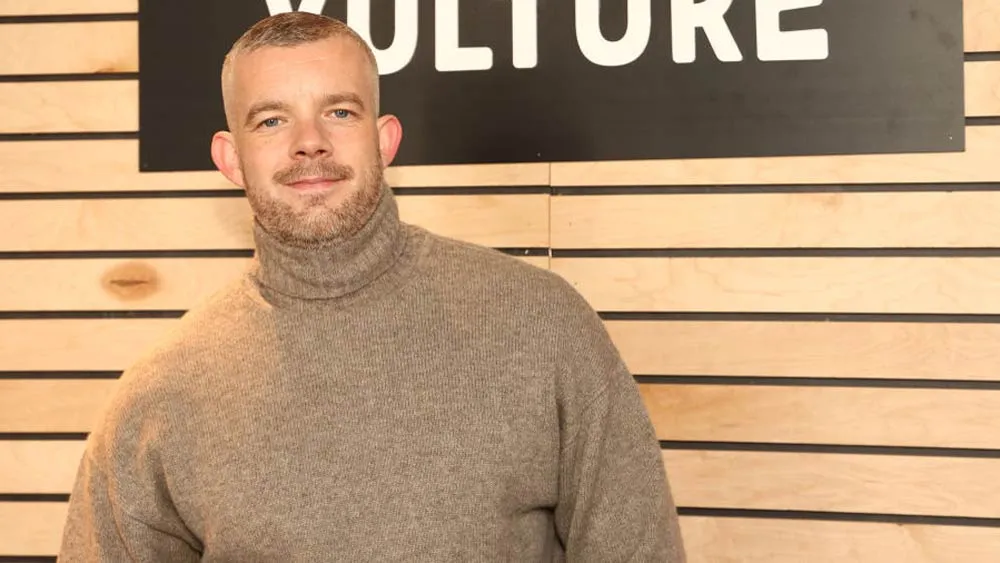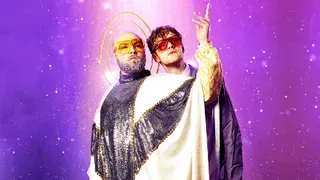July 30, 2013
CBS Defends Handling Of 'Big Brother' Controversy
Robert Nesti READ TIME: 3 MIN.
The "social experiment" that is CBS' "Big Brother" included appalling behavior this season but the network has responded appropriately, CBS Corp. CEO Les Moonves said Monday.
Contestants have been caught on the reality show's 24-hour-a-day Internet feed making boorish and racially insensitive remarks, and some were aired on one of the show's TV episodes.
"What you see there ... unfortunately is reflective of how certain people feel in America. It's what our show is. I think we've handled it properly," Moonves told the Television Critics Association.
The executive has a unique connection to the series: His wife, Julie Chen, is the host, and Moonves said he makes a point of watching each episode. The network responded when racially oriented comments became an issue with the contestants, he said.
In the online feed, contestant GinaMarie Zimmerman, 32, of Staten Island, N.Y., used the N-word to describe welfare as "insurance" for black people.
Another incident involving Zimmerman was part of the TV show. In an exchange with contestant Aaryn Gries of San Angelo, Texas, Zimmerman said a black house member is "on the dark side, but she's already dark." Gries responded, "Be careful what you say in the dark because you might not be able to see the bitch."
A network disclaimer that was shown on screen read, in part, "At times, the Houseguests may reveal prejudices and other beliefs that CBS does not condone" and which do not represent the network's views or opinions.
The remarks clearly disturbed other contestants on the show. Howard Overby, a youth counselor who is black, said he resisted expressing anger for fear it could hurt his chances in the game.
Broadcast's infatuation with the reality genre, which is both popular and can be cheaper to produce than scripted series, has made it an entrenched part of network schedules. But its pitfalls can include the contestants and their on- or off-screen behavior.
At the dawn of the reality cycle, Fox's "Who Wants to Marry a Multi-Millionaire" drew scrutiny in 2000 over the financial and personal credentials of its centerpiece, Rick Rockwell. "American Idol" has jettisoned contestants who failed to disclose arrest records or have other issues.
Some critics have questioned how real much of reality TV is, given factors including casting and editing that are part of the quest for ratings.
"Big Brother," which gathers contestants in a house to live under the gaze of cameras as they compete to be the last one left, was established as a social experiment when it began airing, and "clearly that's what's happening this year," Moonves said. The series, which debuted in 2000, is based on a Dutch show.
While he finds some of the behavior "absolutely appalling," Moonves said, "it's what our show is."
He was asked if what happened might be the result of the network trying too hard to find outgoing, eccentric contestants for shows like "Big Brother" and "Survivor."
"Obviously, you don't want wallflowers on reality shows. You're going to take people that are interesting. ... Sometimes that leads to controversy," he said.
Referring to the original season of "Survivor," he recalled the casting of Richard Hatch, who is gay, and Rudy Boesch, an older man who "wasn't used to dealing with homosexuals at all."
"Now, these two guys became good friends on the island, and so they are social experiments. Trying too hard? I don't think there's any such thing," Moonves said.
He made an unexpected appearance at the Television Critics Association's summer meeting in place of CBS entertainment chief Nina Tassler, who was unable to attend because she was attending a friend's funeral.
Robert Nesti can be reached at [email protected].



